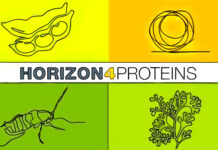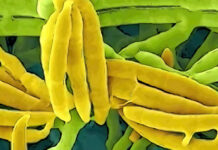Agrobiodiversity, ecological transition, fermentation of grains and legumes-to increase their protein content and facilitate assimilation-and mycoproteins. These are, in all likelihood, the key concepts for addressing food security and nutritional safety issues globally under the banner of sustainable development.
Two research projects – #CROPDIVA and #GIANT LEAPS, co-funded in the Horizon 2020 and Horizon Europe programs, respectively – aim to define good agricultural practices, develop innovative foods, and raise consumer awareness of the importance of an increasingly ‘biodiverse’ and sustainable diet, for the health of the planet and all of us.
1) CROPDIVA. Enhancing agriculture biodiversity.
Agrobiodiversity-that is, the diversity of plants, animals, and microorganisms that directly or indirectly support food and agriculture-is a crucial building block for the ecological transition of agrifood systems. Essential to strengthening their resilience through the systemic ecological functions associated with biodiversity. Nevertheless, 66 percent of global agricultural production relies on 9 plants alone (FAO, 2019). And studies on the Agrobiodiversity Index (Jones S.K. et al., 2021) show that agrobiodiversity is still poorly considered in national agri-food systems. (1)
CROPDIVA is a European research project aimed at promoting the recovery of six arable crops-oats, barley, triticale, buckwheat, fava beans, and lupin-that are currently underutilized, despite their rootedness in food traditions and appreciable nutritional properties. Through innovative solutions, #fromfarm2fork, that can foster agrobiodiversity and ecological transition from genetic resource diversification, agronomic practices, and food innovation. It also proposes the development of fair value chains so as to remunerate the production chain while meeting the needs of consumers.
2) GIANT LEAPS. Accelerating the ecological transition in food consumption
GIANT LEAPS
is a European research project aimed at accelerating agrobiodiversity and ecological transition in food consumption, with a focus on shifting fromanimal-based toalt proteins diets. (3) It is therefore intended to promote a ‘change in eating habits’ in the One Health direction, for the health and welfare of people and animals as well as the protection of the environment. (4) Including by reducing the environmental footprint, especially in terms ofgreenhouse gas (GHG) emissions and consumption of energy, water and land.
The GIANT LEAPS project – in line with the
European Green Deal
and the EU strategy
Farm to Fork
– aspires to contribute to a very ambitious goal. Make alternative protein sources–e.g., cereals, legumes, mycoproteins, microalgae, insects, and unicellular proteins–reach 50 percent of the total protein intake of the European population by 2030. And contribute to the development of new value chains, for economic and employment growth.
3) Food innovation, biodiversity and ecological transition. The work of IRTA
Massimo Castellari – senior researcher at IRTA(Institute of Agrifood Research and Technology. Gyrona, Catalunya, España), coordinator of the #ProFuture project on microalgae, among others – tells us about the food innovations envisaged in the two projects under consideration:
- ‘As part of the CROPDIVA project, in IRTA we will develop plant beverages (milk analogs) and meat analogs from combinations of concentrated extracts and isolates of grains and legumes,
- in the GIANT LEAPS project, in IRTA we will develop new formulations of dairy-like products (yogurt, cheese, etc.), again plant-based, as well as vegan meatballs.’
4) Fermentation, fungi, mycoproteins
‘In both projects’
– Massimo Castellari of IRTA continues – ‘We will also explore the possibility of improving the nutritional properties of grains, legumes, microalgae and other plant protein sources by fermentation in the solid state (with hyphae of edible fungi) or liquid. The goal is to make a tempeh-like product that can be consumed as is or be used as a flour once dried and ground.’
5) Interim Conclusions
Fostering agrobiodiversity and ecological transition in food consumption requires major efforts in research and product as well as supply chain innovation. Indeed, the goals of ‘changing eating habits’ postulate the ability to reach the mass market by offering products that are not only sustainable but also convenient and organoleptically inviting.
There is no shortage of ideas and tools to implement them, as can be seen from these brief mentions of the CROPDIVA and GIANT LEAPS projects. Fermentation processes of grains and legumes by the hyphae of edible fungi, moreover, can also increase protein contents. And mycoproteins, in turn, also express enormous potential in the logic of circular economy (5,6).
Dario Dongo and Andrea Adelmo Della Penna
Notes
(1) Jones S.K. et al. (2021). Agrobiodiversity Index scores show agrobiodiversity is underutilized in national food systems. Nature Food 2:712-723, https://doi.org/10.1038/s43016-021-00344-3
(2) CROPDIVA. See project website https://www.cropdiva.eu/ and its social channels on LinkedIn https://www.linkedin.com/company/cropdiva/ and Twitter https://twitter.com/H2020Cropdiva
(3) GIANT LEAPS. See project website https://giantleaps.eu/ and its social channels on LinkedIn https://www.linkedin.com/company/giantleapseu/ and Twitter https://twitter.com/giantleapseu
(4) Dario Dongo. One Health. Animal, human, planetary health and welfare. What can we do? 2.6.21
(5) Dario Dongo and Andrea Adelmo Della Penna. Proteins from fungi and micro fungi, mycoproteins, the ABCs. GIFT (Great Italian Food Trade). 12.10.22
(6) Dario Dongo. Schooled by termites to grow record mushrooms. GIFT (Great Italian Food Trade). 8.12.22








